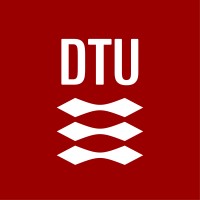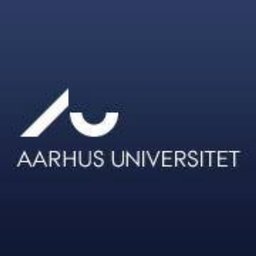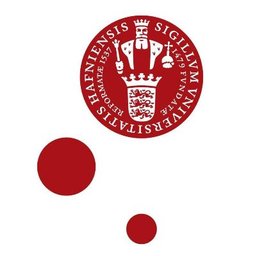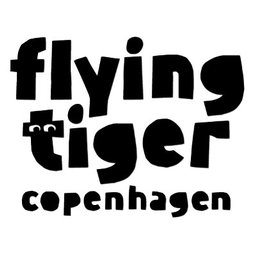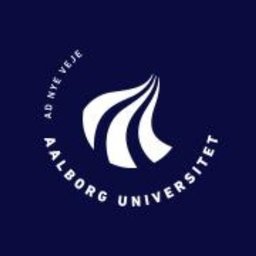If you have extended experience in imaging and imaging analysis from two- and three-dimension (3D) cell culture and your aspiration is to be at the forefront of system biology and single-cell analysis of cell signalling, this three-years postdoc position at DTU Bioengineering will fulfil your scientific and personal development in an international, multi-disciplinary, and curiosity-driven research team.
This position will be affiliated with the teams of Associate Professors Chiara Francavilla and Erwin Schoof in the Section for Medical Biotechnology at the Department of Biotechnology and Biomedicine, Technical University of Denmark. You will work on regulatory mechanisms of cell signalling downstream of Receptor Tyrosine Kinases using mammalian cells grown in 3D cell cultures and will develop imaging-driven quantitative Mass Spectrometry-based omics methods, both at bulk population and single-cell levels, for this project. You will work closely with experts in cellular signalling, proteomics, and bioinformatics to make informed decisions on data analysis and validation experiments.
Dr Francavilla’s team is funded by the Novo Nordisk Foundation and LEO Foundation and focuses on regulatory mechanisms of cell signalling in several cellular models. The team combines omics technologies with bioinformatics, and functional validation of candidates by biochemical, cell biology, and imaging methods (see for instance, Smith, Ferguson et al., EMBO J., 2021; Watson, Ferguson et al., Nat Comm, 2022; Ogden et al., NAR Cancer, 2023; Madzharova E et al., 2024). This international, passionate, and multidisciplinary team will work in close collaboration with the Francavilla-led team at the University of Manchester, UK, and with several scientists with diverse background in Denmark and abroad.
Dr Schoof’s team is internationally recognised for pioneering methods and applications of Mass Spectrometry-based single-cell proteomics. He leads the Cell Diversity Lab, whose mission is to unravel fundamental biological concepts controlling heterogeneity within complex biological systems, especially those of the blood system and cancer. Relevant publications include Schoof, Furtwängler et al., Nat Comm 2021, Petrosius et al., Nat Comm 2023, Petrosius et al. MCP 2025, Daucke et al., BioRxiv 2025, Üresin et al., BioRxiv 2024 and Furtwängler et al, BioRxiv 2024. Their ultimate ambition is to translate the molecular insights derived from a range of modalities (DNA, mRNA and proteins) to in-depth knowledge about how cellular heterogeneity contributes to disease phenotypes and ultimately, development of effective and personalized therapeutic strategies.
Responsibilities
Your main responsibilities will be:
- Develop and apply quantitative methods for imaging of signaling molecules in mammalian cell cultures grown in both 2D and 3D cell cultures under several perturbations
- Develop and apply methods for the analysis of the cellular proteome both at cell type, and single-cell level, based on imaging results and recent spatial proteomics workflows
- Perform imaging and omics data analysis and data integration and validate key results using functional assays in cell culture and in patient-derived samples
- Plan and collaborate on research activities with team members and external partners
- Stay updated with relevant literature and methodologies, maintain and share accurate records of findings with the team
- Present findings to the team, supervisor, and scientific community, promoting the lab's reputation, write reports for sponsors, research grants, and submit publications to journals
- Teach, supervise, and mentor undergraduate, PhD, and Master students
- Undertake agreed administrative tasks
We expect the candidate to have following qualifications:
- Must hold a PhD in Biochemistry, Cell Biology, Molecular Biology, or similar disciplines
- Extensive and up-to-date theoretical and practical knowledge and strong record in the fields of imaging using confocal and more advanced microscopes (ideally including Leica Laser Capture Microdissection microscope), signal transduction, and 3D cell culture
- Experience with data analysis and visualization (e.g. R environment and Cytoscape; Imaris)
- At least one publication in relevant peer-reviewed international journals demonstrating the above-mentioned skills
- Good communication skills and ability to work with colleagues at all levels and proven ability to undertake a complex workload with multiple and competing priorities without supervision
- High level written and spoken English
- A willingness to contribute to the work of others by offering practical and intellectual help
- Be enthusiastic, committed, hard-working, and self-motivated in an international environment
We offer
DTU is a leading technical university globally recognized for the excellence of its research, education, innovation and scientific advice. We offer a rewarding and challenging job in an international environment. We strive for academic excellence in an environment characterized by collegial respect and academic freedom tempered by responsibility.
Salary and terms of employment
The appointment will be based on the collective agreement with the Danish Confederation of Professional Associations. The allowance will be agreed upon with the relevant union.
The period of employment is 3 years starting from 1 January 2026.
You can read more about career paths at DTU here.
Further information
Further information may be obtained from Chiara Francavilla [email protected].
You can read more about Department of Biotechnology and Biomedicine at www.bioengineering.dtu.dk.
If you are applying from abroad, you may find useful information on working in Denmark and at DTU at DTU – Moving to Denmark.
Application procedure
Your complete online application must be submitted no later than 30 September 2025 (23:59 Danish time). Applications must be submitted as one PDF file containing all materials to be given consideration. To apply, please open the link "Apply now", fill out the online application form, and attach all your materials in English in one PDF file. The file must include:
- Application (cover letter)
- CV
- Academic Diplomas (MSc/PhD – in English)
- List of publications
Applications received after the deadline will not be considered.
All interested candidates irrespective of age, gender, disability, race, religion or ethnic background are encouraged to apply. As DTU works with research in critical technology, which is subject to special rules for security and export control, open-source background checks may be conducted on qualified candidates for the position.
The Department of Biotechnology and Biomedicine (DTU Bioengineering) is an international leader in the areas of biotechnology and biomedicine. Our engineering approach to all aspects of biotechnology and biomedicine positions us as a valuable player with unique competences in a growing bio-based economy and with health systems transforming towards personalized medicine. We have a clear focus on the needs in the life science industry and point towards innovation, new businesses, and scientific services for the benefit of society. The department has extensive collaborations with national and international research units and industry. DTU Bioengineering has approx. 400 employees, of which 2/3 are scientific staff. The department is located at DTU Lyngby Campus.
Technology for people
DTU develops technology for people. With our international elite research and study programmes, we are helping to create a better world and to solve the global challenges formulated in the UN’s 17 Sustainable Development Goals. Hans Christian Ørsted founded DTU in 1829 with a clear mission to develop and create value using science and engineering to benefit society. That mission lives on today. DTU has 13,500 students and 6,000 employees. We work in an international atmosphere and have an inclusive, evolving, and informal working environment. DTU has campuses in all parts of Denmark and in Greenland, and we collaborate with the best universities around the world.
